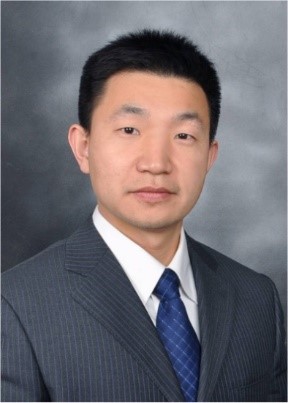报告题目:Self-powered Medical Electronics
报告人:李舟 研究员, 中科院北京纳米能源与系统研究所
时间:2019-10-18 15:00-17:00
地点:同安二201外间会议室
报告摘要:
Recently, piezoelectric nanogenerator (PENG) and triboelectric nanogenerator (TENG) have attracted much attention and been considered as another potential solution for harvesting mechanical energy. With its high output performance, outstanding biocompatibility and low cost, nanogenerator (NG) has been studied for powering implantable and wearable electronic medical devices.
Here, we demonstrated the application of nanogenerators in biomedical science and health care. The NGs can convert the mechanical energy from human motion into electricity and drive the implanted long-term self-powered medical devices or biosensors. Different biomechanical-energy harvesters based on NGs were invented which worked as power sources in self-powered medical electronics or as active sensors for disease detection. An implantable triboelectric nanogenerator (iTENG) in a living animal has been developed to harvest energy from its periodic breathing. The energy generated from breathing, body movement and heart beating was used to power a symbiotic cardiac pacemaker in vivo of a pig, which could regulate the heart rate and cure heart arrhythmia of the large animal. Another low-level laser cure (SPLC) system was also demostrated for accelerating the proliferation and differentiation of osteoblast, which can be used for bone and tooth repairing. In vivo real-time acquisition and wireless transmission of self-powered cardiac monitoring data was also demonstrated for the first time. A wearable and flexible self-powered pulse sensor based on NG has been applied to diagnose and antidiastole of coronary heart disease, atrial septal defect and atrial fibrillation from health. These works are concentrated in the field of medical devices, biosensors and disease detection devices. It showed broad clinical applications of self-powered medical systems for biomedical science and health care.
Keywords: implantable triboelectric nanogenerator (iTENG), implantable medical electronic devices, Self-powered, biomechanical-energy, wireless cardiac monitoring
References
[1] Z. Li*, et al, Nature Communications, 2019, 10, 269.
[2] Z. Li*, et al, Nature Communications, 2019, 10, 1821.
[3] Z. Li*, et al, ACS Nano, 2019, 06, 38, 37.
[4] Z. Li*, et al, Adv. Funct. Mater., 2019, 1900372.
[6] Z. Li*, et al, Advanced Materials, 2018, 1801895
[7]Z. Li*, et al, Advanced Materials, 2018, 1801511
报告人简介:

Prof. Zhou Li
Prof. Zhou Li received his Ph.D. from Peking University in 2010, and bachelor degree from Wuhan University in 2004. He studied in Georgia Institute of Technology from 2007 to 2009. He joined School of Biological Science and Medical Engineering of Beihang University in 2010 as an associate Professor. Currently, he is a full Professor in Beijing Institute of Nanoenergy and Nanosystems, Chinese Academy of Sciences and School of Nanoscience and Technology, University of Chinese Academy of Sciences.
Prof. Zhou Li’s research interest focused on the nanogenerators, self-powered medical system, implantable energy harvesting devices, single cell mechanics and nano-biosensors. More than 80 peer-review articles have been published in Sci. Adv., Nature Comm., Adv. Mater., Adv. Energy Mater., Nano Lett., Adv. Funct. Mater., ACS Nano, Nano Energy, Annual Review of Biomedical Engineering, Advanced Science, and Small. And his papers have been cited more than 3000 times. Prof. Li applied 52 patents, 4 PCTs and 1 International Patent. Prof. Li have been awarded Science and Technology Award of Beijing, “Young Investigator’s Award” of International Federation for Medical and Biological Engineering (IFMBE) and Gold Award of China Association of Inventions. His work was highlighted by Nature, The People’s Daily, The Times, Scientific American, New Scientist and other inland and international mediums.
Prof. Li is the Vice-Chairman of Youth Committee in the China Society of Biomedical Engineering, the Youth Committee member of the China Society of Biological Engineering. He is supported by the National Youth Talent Support Program, New Century Excellent Talents of Ministry of Education of China, Beijing Novo Program and Beijing Top-notch Talent Program.
He is also Guest-editor of Advanced Functional Materials,InfoMat, et al and the Editorial board member of Science Bulletin and works as invited reviewer for more than 50 SCI journals.
Group website: www.nanobiolab.cn
ORCID: https://orcid.org/0000-0002-9952-7296
Google Scholar: https://scholar.google.com/citations?user=es49yzQAAAAJ&hl=zh-CN
ResearcherID:http://www.researcherid.com/rid/E-7734-2018
